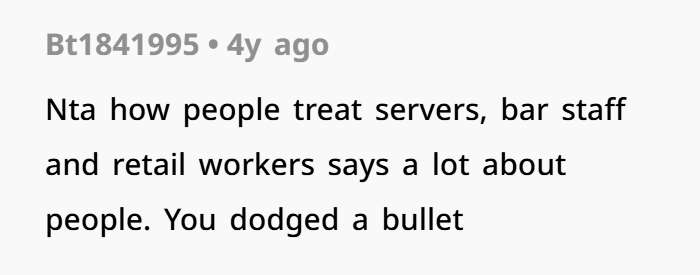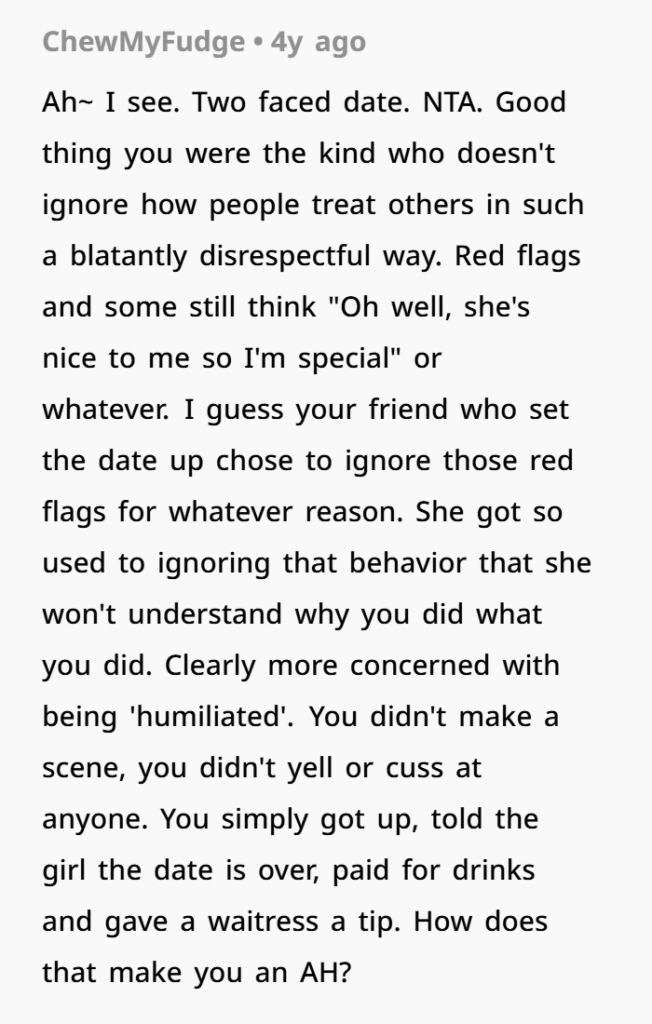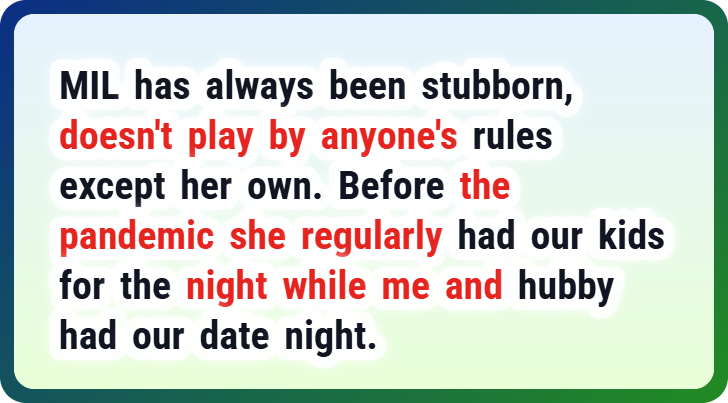AITA for Walking Out on a Date After She Berated the Waitress?

A man (27M) reluctantly agreed to a blind date set up by a friend, hoping to keep things casual. The restaurant—a small Mexican eatery with a wait due to COVID spacing—set the scene for what turned out to be a disaster. From the start, his date was impatient and began verbally attacking the waitress, criticizing minor issues like ice in her drink and the menu selection. She grew increasingly hostile, eventually calling the waitress a “f*cking dumbass.”
Advertisement – Continue Reading Below
Unable to tolerate the mistreatment, the man apologized to the waitress, paid for their drinks, tipped generously, and walked out—leaving the date stunned. His phone exploded with angry messages from both the woman and the friend who arranged the date, accusing him of humiliation and overreaction. Now, he’s questioning whether walking away made him the villain, despite his stance against customer abuse.
People might always act nice to you, but they often reveal how they truly are based on how they are with others

The poster’s friend set him up with one of her friends, and they decided to meet at a Mexican restaurant




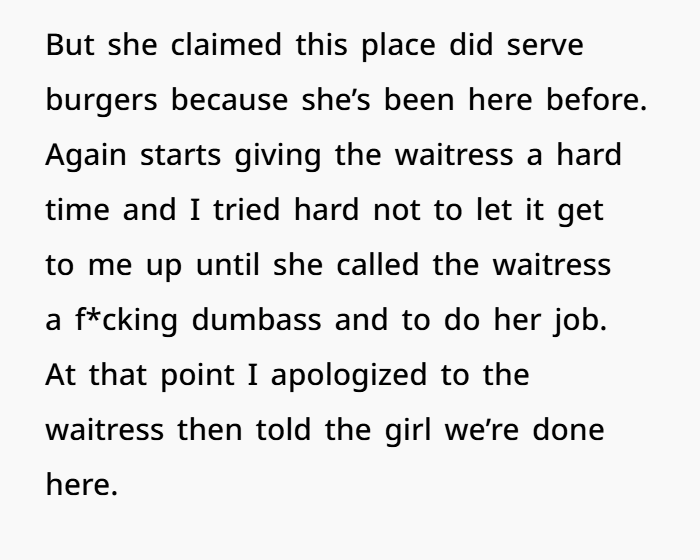


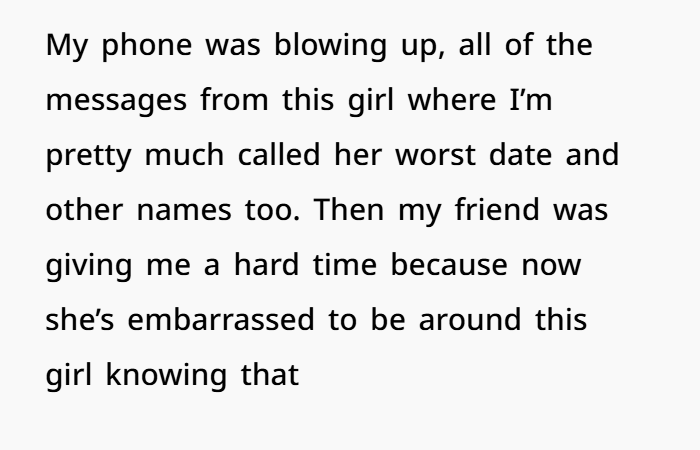


1. Red Flags on First Dates: Disrespect Toward Service Workers
When someone is rude to waitstaff, it often signals deeper issues with entitlement, empathy, or emotional control. According to a 2019 survey by YouGov, over 67% of adults say they’d end a date early if their companion was rude to restaurant staff . This behavior reveals how people might treat others when there’s no expectation of civility—particularly those they perceive as beneath them in status.
Advertisement – Continue Reading Below
2. Moral Boundaries and the Right to Walk Away
Walking away from a toxic interaction—even mid-meal—is supported by etiquette experts. In her guide to dating etiquette, author April Masini states, “If someone becomes verbally abusive, controlling, or humiliating in public, you owe them no further interaction” .

In this case, the man clearly set a moral boundary—refusing to share a meal with someone mistreating others. This isn’t about being a “jackass,” but rather asserting emotional integrity.
3. Cultural Conditioning: Why Kindness to Waitstaff Matters
Many who grow up around food service understand the emotional toll of mistreatment. A study by Cornell University’s School of Hotel Administration found that over 80% of restaurant workers experience verbal abuse weekly, primarily from customers .
Advertisement – Continue Reading Below
For someone raised by a waitress, witnessing similar mistreatment is often deeply triggering, invoking a mix of personal history and injustice. This context offers crucial insight into why this situation was non-negotiable for him.
4. Friend Mediation and Misplaced Expectations
The friend who set them up criticized the man for walking out, claiming it humiliated her friend and could’ve been handled “like a gentleman.” However, this advice overlooks key dating boundaries: You’re not obligated to finish a date that turns hostile.
Blaming the man for someone else’s actions reflects poorly on the friend, who prioritized optics over accountability. Moreover, matchmaking carries implicit responsibility—if you vouch for someone, you share in the fallout when they act out.
Advertisement – Continue Reading Below
5. Alternative Actions: Could It Have Been Handled Differently?
Critics might say he could have waited for the bill, quietly expressed discomfort, or excused himself with an excuse. But in a real-time conflict, particularly one involving verbal abuse of staff, swift action is sometimes the only morally coherent response.
By apologizing, paying for drinks, and tipping well, the man exited with class—even under tension. This falls in line with what dating coaches refer to as “exit with dignity” protocol: leave, but do so respectfully and without creating a further scene .
High CPC keywords: respectful conflict resolution, dating with integrity, exit strategies in dating
Advertisement – Continue Reading Below
6. Emotional Intelligence and Long-Term Compatibility
Behavior on first dates reveals potential for long-term connection—or incompatibility. Public rudeness and refusal to acknowledge others’ boundaries scream emotional immaturity. Emotional intelligence requires self-awareness and social respect, both of which were absent in this scenario.

By standing up for himself and the waitress, the man demonstrated strong emotional IQ and self-respect, signaling the kind of values needed for any future relationship.
Final Verdict: Not the A**hole
This isn’t just a dating disagreement—it’s a moral crossroads. When someone berates a service worker in public and refuses accountability, leaving is not only justified—it’s the right thing to do. This man showed restraint, clarity, and compassion in a hostile situation, and he deserves none of the backlash being aimed at him.
Advertisement – Continue Reading Below
Walking away doesn’t make someone the villain—it often makes them the only adult in the room.
Netizens didn’t shy away from calling out his date, and some even applauded him for ditching her mid-dinner


